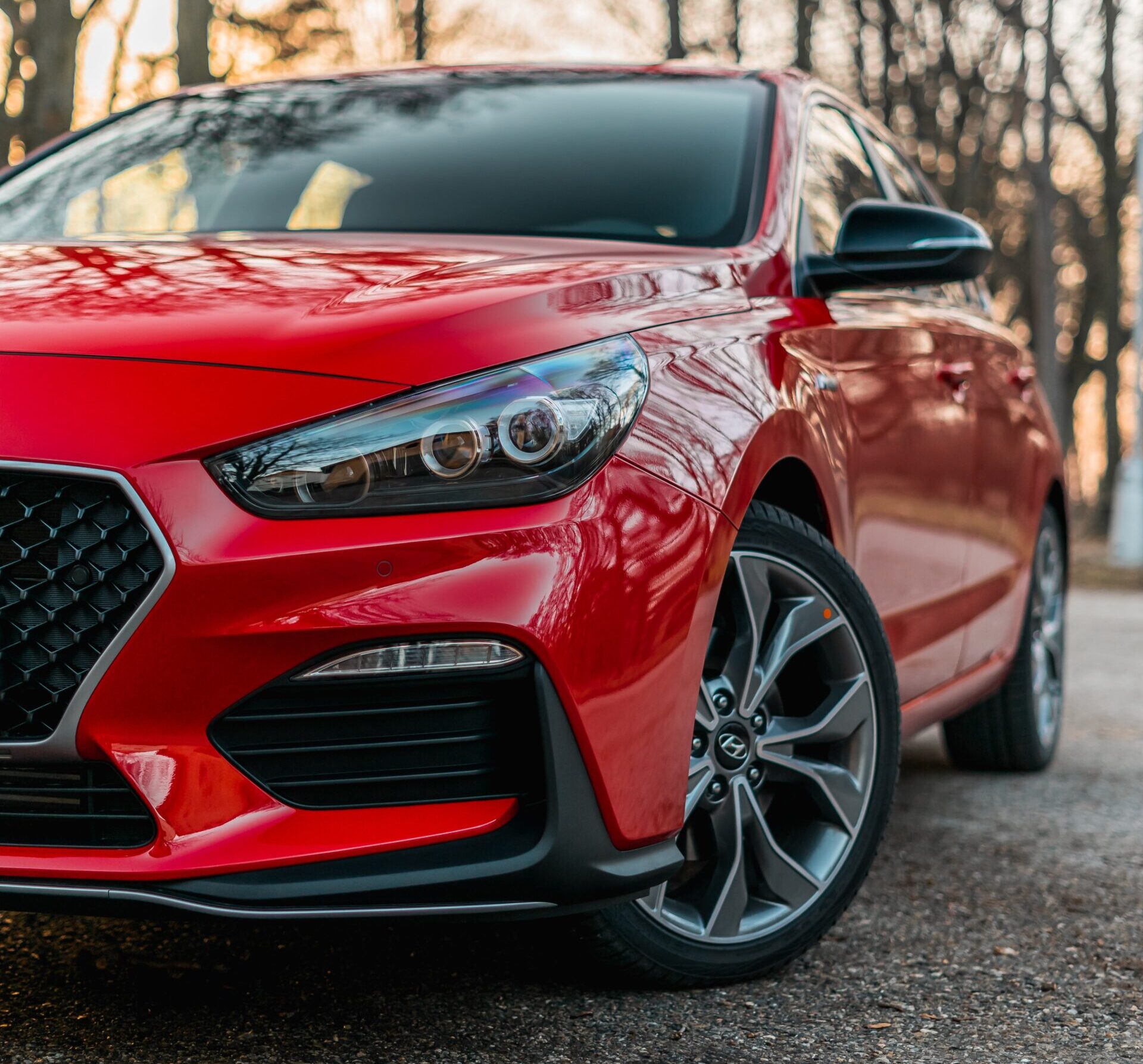Support our educational content for free when you purchase through links on our site. Learn more
🚗 Unlocking the Secrets: How Much Does It REALLY Cost to Lease a Used Car? [2024]
You’ve heard the whispers: used car leasing is a game-changer. Lower monthly payments, no trade-in hassle, and the chance to drive a newer model without the sticker shock. But how much does it really cost? We’re not just talking about the monthly payment, we’re diving deep into the hidden fees, mileage limitations, and the fine print that can make or break your deal. Let’s be honest, we’ve all been there, staring at a lease agreement like it’s written in hieroglyphics. But don’t worry, we’re here to break it down, so you can confidently navigate the world of used car leasing and find a deal that fits your budget and lifestyle.
Think of it this way: imagine you’re cruising down the highway in a sleek new SUV, the wind in your hair, and the open road ahead. But then, you hit a detour. That’s what happens when you don’t understand the ins and outs of used car leasing. You might end up with a deal that’s not as good as it seems, or worse, you might get stuck with a car you can’t afford. We’re here to help you avoid those detours and get you on the right track to a great lease deal.
Key Takeaways
- Leasing a used car can be a cost-effective way to drive a newer model, but it’s important to understand the terms and conditions of the lease.
- Factors that influence the cost of a used car lease include the vehicle price, lease term, mileage allowance, and lease factor.
- Negotiate the price, mileage allowance, and lease terms to get the best possible deal.
- Read the fine print of the lease agreement carefully to avoid hidden costs and fees.
👉 CHECK PRICE on:
- Used Car Leases: TrueCar | Edmunds | Auto Trader
- Car Leasing Platforms: LeaseTrader | Swapalease | Leasing.com
Table of Contents
- Quick Tips and Facts
- The Evolution of Used Car Leasing: From Niche to Mainstream
- Understanding the Basics of Used Car Leasing
- What To Consider Before Leasing a Used Car
- Factors Influencing Used Car Lease Costs
- Decoding the Lease Agreement: Key Terms Explained
- Calculating Your Monthly Lease Payment
- Negotiating a Great Lease Deal: Tips and Strategies
- Finding the Right Used Car Lease Deal for You
- The Pros and Cons of Leasing a Used Car
- Alternatives to Leasing: Buying vs. Financing
- Conclusion
- Recommended Links
- FAQ
- Reference Links
Quick Tips and Facts
Before we dive into the details of leasing a used car, here are some quick tips and facts to keep in mind:
- Leasing a used car can be a cost-effective option: With lower monthly payments and no trade-in hassle, leasing a used car can be a great way to drive a reliable vehicle without breaking the bank.
- Check the car’s history: Use services like Carfax or AutoCheck to get a detailed report on the car’s ownership history, accidents, and any major repairs.
- Negotiate the price: Don’t be afraid to negotiate the price of the car, even if it’s a lease. You can also negotiate the lease terms, such as the mileage allowance and monthly payment.
- Read the fine print: Make sure you understand all the terms and conditions of the lease, including any fees or penalties.
- Check the warranty: Find out if the car still has a valid warranty and what’s covered.
Leasing a Used Car: Pros and Cons
| Pros | Cons |
|---|---|
| Lower monthly payments | Limited mileage allowance |
| No trade-in hassle | No equity in the vehicle |
| Latest models available | Higher insurance costs |
| Minimal upfront costs | Potential for excessive wear and tear fees |
The Evolution of Used Car Leasing: From Niche to Mainstream
Used car leasing has come a long way since its inception. What was once a niche market has now become a mainstream option for car buyers. With the rise of online marketplaces and leasing platforms, it’s easier than ever to find a used car lease that fits your budget and needs.
How Leasing a Used Car Works
Leasing a used car is similar to leasing a new car. You pay a monthly fee to use the vehicle for a set period of time, usually 2-3 years. At the end of the lease, you can return the car to the dealer or purchase it at a predetermined price.
Understanding the Basics of Used Car Leasing
Before you start shopping for a used car lease, it’s essential to understand the basics of leasing a used car. Here are some key terms to know:
- Capitalized cost: The total cost of the vehicle, including any fees or taxes.
- Residual value: The estimated value of the vehicle at the end of the lease.
- Lease factor: The interest rate on the lease, expressed as a decimal.
- Mileage allowance: The number of miles you’re allowed to drive per year.
What To Consider Before Leasing a Used Car
Before you lease a used car, there are several things to consider. Here are some key factors to think about:
- Budget: How much can you afford to pay per month?
- Mileage: How many miles do you drive per year?
- Reliability: Is the car reliable and well-maintained?
- Warranty: Is the car still under warranty?
Factors Influencing Used Car Lease Costs
Several factors can influence the cost of a used car lease. Here are some key factors to consider:
- Vehicle price: The higher the vehicle price, the higher the lease payment.
- Lease term: The longer the lease term, the lower the monthly payment.
- Mileage allowance: The higher the mileage allowance, the higher the lease payment.
- Lease factor: The higher the lease factor, the higher the lease payment.
Decoding the Lease Agreement: Key Terms Explained
When you lease a used car, you’ll need to sign a lease agreement. Here are some key terms to understand:
- Lease duration: The length of the lease, usually 2-3 years.
- Monthly payment: The amount you’ll pay each month to use the vehicle.
- Mileage allowance: The number of miles you’re allowed to drive per year.
- Excessive wear and tear fees: Fees charged for damage beyond normal wear and tear.
Calculating Your Monthly Lease Payment
To calculate your monthly lease payment, you’ll need to know the following:
- Vehicle price: The total cost of the vehicle.
- Lease term: The length of the lease.
- Mileage allowance: The number of miles you’re allowed to drive per year.
- Lease factor: The interest rate on the lease.
Negotiating a Great Lease Deal: Tips and Strategies
When negotiating a lease deal, here are some tips and strategies to keep in mind:
- Research the market: Know the going rate for the vehicle you’re interested in.
- Check the car’s history: Use services like Carfax or AutoCheck to get a detailed report on the car’s ownership history, accidents, and any major repairs.
- Negotiate the price: Don’t be afraid to negotiate the price of the car, even if it’s a lease.
- Read the fine print: Make sure you understand all the terms and conditions of the lease.
Finding the Right Used Car Lease Deal for You
To find the right used car lease deal for you, consider the following:
- Budget: How much can you afford to pay per month?
- Mileage: How many miles do you drive per year?
- Reliability: Is the car reliable and well-maintained?
- Warranty: Is the car still under warranty?
The Pros and Cons of Leasing a Used Car
Here are some pros and cons of leasing a used car:
- Pros:
- Lower monthly payments
- No trade-in hassle
- Latest models available
- Minimal upfront costs
- Cons:
- Limited mileage allowance
- No equity in the vehicle
- Higher insurance costs
- Potential for excessive wear and tear fees
Alternatives to Leasing: Buying vs. Financing
If leasing a used car isn’t for you, consider the following alternatives:
- Buying: Paying cash or financing a car through a loan or credit union.
- Financing: Using a loan or credit union to purchase a car.
CHECK PRICE on:
- Used Car Leases: TrueCar | Edmunds | Auto Trader
- Car Leasing Platforms: LeaseTrader | Swapalease | Leasing.com
Conclusion
Leasing a used car can be a smart financial decision, offering lower monthly payments and access to newer models. However, it’s crucial to understand the terms and conditions of the lease, including mileage allowances, wear and tear fees, and potential end-of-lease costs.
By carefully researching, negotiating, and understanding the lease agreement, you can find a used car lease that fits your budget and driving needs.
Remember, leasing a used car is not for everyone. If you prefer to own your vehicle or drive it for a longer period, buying or financing might be a better option.
Recommended Links
👉 CHECK PRICE on:
- Used Car Leases: TrueCar | Edmunds | Auto Trader
- Car Leasing Platforms: LeaseTrader | Swapalease | Leasing.com
FAQ

What are the benefits of leasing a used car?
Leasing a used car offers several benefits, including:
- Lower monthly payments: You’ll typically pay less per month for a used car lease than for a new car lease.
- No trade-in hassle: You don’t have to worry about selling your old car when you lease a used car.
- Access to newer models: You can drive a newer car without the high upfront cost of buying a new vehicle.
- Minimal upfront costs: You’ll usually pay a lower down payment for a used car lease than for a new car lease.
Read more about “How Much is a Lease on a $25,000 Car? 7 Essential Insights You Need to Know! 🚗💰”
What are the drawbacks of leasing a used car?
Leasing a used car also has some drawbacks, including:
- Limited mileage allowance: You’ll be limited to a certain number of miles per year.
- No equity in the vehicle: You won’t own the car at the end of the lease.
- Higher insurance costs: Insurance costs for leased vehicles are typically higher than for owned vehicles.
- Potential for excessive wear and tear fees: You’ll be charged for any damage beyond normal wear and tear.
Read more about “How Much is a Car Lease Per Month? 10 Essential Insights You Need to Know … 🚗✨”
What are the hidden costs of leasing a car?
Besides the monthly payment, there are several hidden costs associated with leasing a car, including:
- Acquisition fee: A fee charged by the dealership for processing the lease.
- Disposition fee: A fee charged at the end of the lease for preparing the vehicle for resale.
- Excess wear and tear fees: Fees charged for damage beyond normal wear and tear.
- Mileage overage fees: Fees charged for exceeding the mileage allowance.
How much should I spend on a car lease?
The amount you should spend on a car lease depends on your budget and financial situation. A good rule of thumb is to keep your monthly lease payment to no more than 10% of your gross monthly income.
Read more about “Car Leases: 15 Insider Secrets You Must Know for 2024! 🚗✨”
Reference Links
- Carfax: https://www.carfax.com/
- AutoCheck: https://www.autocheck.com/
- Edmunds: https://www.edmunds.com/
- TrueCar: https://www.truecar.com/
- Auto Trader: https://www.autotrader.com/
- LeaseTrader: https://www.leasetrader.com/
- Swapalease: https://www.swapalease.com/
- Leasing.com: https://leasing.com/
- How much can I afford for a lease? – Edmunds Help Center: https://help.edmunds.com/hc/en-us/articles/206102527-How-much-can-I-afford-for-a-lease#:~:text=A%20general%20rule%20of%20thumb,help%20you%20determine%20your%20budget.



